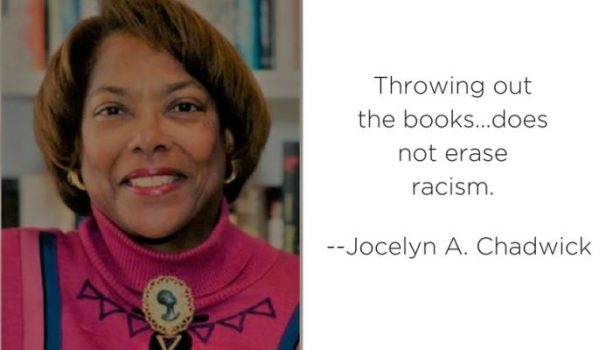There’s been a brouhaha in Duluth, Minnesota, where earlier this month, the superintendent declared that The Adventures of Huckleberry Finn and To Kill a Mockingbird would be removed from the required book list for middle and high schools in the district. The books weren’t being “censored,” school district officials told the press; they would be available in school libraries and students could choose them for free reading. However, teachers were no longer to teach these texts.
In making this new policy, the administration of the Duluth Public Schools neglected to follow its own policy for text selection, which places square in the hands of teachers the selection of texts and later approval by the administration and board. The process for reconsideration of texts outlines steps similar to those suggested in NCTE’s Student, Right to Read. Neither of these processes were used to make the decision about Huck Finn and TKAM. Teachers weren’t involved in the decision to remove of the books from the curriculum.
NCTE president Jocelyn A. Chadwick spoke about the challenge on Minnesota Public Radio which asked her, “Is there still value in reading ‘Huck Finn’ and ‘To Kill A Mockingbird’?”
She noted, “Students should not be made to feel uncomfortable in a classroom, they should be made to feel safe. And safe does not necessarily mean not reading uncomfortable literature…just about everything we teach right down to Little Red Riding Hood is uncomfortable…I want a good text.
[To make students feel safe], I prepare myself as much as I can…teachers may need…[more] training to reread a text [for] a new generation. If [as a teacher] you’re not comfortable teaching a text, your students won’t be comfortable.
[In Huck Finn and To Kill a Mockingbird], these are young folks…trying to work their way through these huge adult issues. Let’s see what [our students] think about this.
I will fight for artists—e.g. Toni Morrison or Twain—to use the language they feel is necessary to convey their message.
NCTE supports the National Coalition Against Censorship statement on the book removal and last week joined NCAC in sending a letter to the Duluth Public Schools.
As reported in the Minnesota Public Radio blog:
The school superintendent’s rationale for leaving teachers out of a discussion that reportedly ran for months strains credibility.
“The decision to protect the dignity of our students seemed like a reasonable and easy one to make that didn’t require teacher input,” Michael Cary, the district’s director of curriculum and instruction, told the Duluth News Tribune. “But in terms of making sure that we select excellent novels that serve the same purpose, that definitely needs teacher feedback and their help in making that decision.”
If the decision alone was an easy one, why did the discussion take months, not minutes?
That we’re coming at this all wrong is proven by the fact that almost nobody with an opinion knows what books are on the required reading list now, nor whether they’re there because they’ve always been there or they stand the test of time and the changing nature of our population.
The English teachers do.
I agree.

